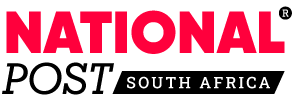At the 32nd Annual Meeting of the African Export-Import Bank (Afreximbank), one of Africa’s most influential industrialists, Aliko Dangote, delivered a compelling and ambitious message: Africa can become an economic “heaven” within just five years. The continent, rich in resources and human capital, has the potential to rapidly transform into a global powerhouse—but only if Africans themselves embrace bold thinking, long-term strategies, and a commitment to self-reliance.
The Power of Bold Thinking and Ownership
Dangote’s speech in Accra wasn’t just rhetoric; it was a blueprint rooted in decades of experience and investment. “You need to think big, and then you grow big,” he stated. His call was directed primarily at African business leaders, policymakers, and citizens — stressing that Africans must take ownership of their continent’s destiny. “We African champions should know that we are the only people who can make Africa great. Nobody will do that for us.”
This message is crucial. Historically, Africa has been dependent on foreign aid, imports, and investments driven by external interests. Dangote’s vision challenges this status quo, emphasizing that real and sustainable development requires Africans to drive wealth creation locally, not merely to accumulate wealth personally but to build industries and infrastructure that serve the continent’s broader economic needs.
The Dangote Refinery: A Symbol of African Industrial Ambition
A flagship example of this philosophy is the Dangote Refinery near Lagos, Nigeria—a $20 billion mega-project and the largest single-train oil refinery in the world. It stands as a testament to what African-led industrialization can achieve.
Though delayed for several years, the refinery began producing diesel, naphtha, and jet fuel in January last year, with petrol production following in September. The scale is impressive: it exceeds the combined capacity of Europe’s ten largest refineries. According to the Organisation of the Petroleum Exporting Countries (OPEC), this facility is already reshaping the oil market.
The refinery’s output threatens to disrupt a long-standing trade pattern where Africa imports refined petroleum products primarily from Europe, spending an estimated $17 billion annually. By meeting local demand, Dangote’s refinery can reduce the continent’s dependence on imports, strengthen energy security, and improve the trade balance.
Economic Impact Beyond Oil
The refinery’s benefits extend beyond energy. By providing reliable, locally refined petroleum products, the project is expected to energize other sectors such as manufacturing, transportation, and agriculture. Energy costs are a significant barrier to industrial growth in Africa; stable, affordable supplies will reduce production costs and attract further investments.
Furthermore, the refinery supports job creation and skills development, reinforcing local economies. Its construction and operation have already generated thousands of jobs, and ongoing operations promise continued employment opportunities.
Diversifying Africa’s Industrial Base: Fertiliser Production
Dangote’s ambitions are not limited to oil. At the Afreximbank meeting, he outlined plans to make his company the world’s largest exporter of urea fertiliser within four years, overtaking Qatar.
Africa imports over six million tonnes of fertiliser annually, a factor constraining agricultural productivity and food security across the continent. By investing in fertiliser production, Dangote is addressing a critical bottleneck in African agriculture, enabling farmers to increase yields, improve food sovereignty, and reduce the continent’s reliance on costly imports.
This push aligns with Africa’s broader industrialization goals, emphasizing diversification and value addition. Fertiliser manufacturing, alongside energy and mining projects, forms a foundational pillar of the continent’s industrial future.
Navigating Global Economic Uncertainty
Dangote’s confidence comes amid a challenging global economic landscape. Rising trade tensions, protectionism, and tariffs — notably from the United States — have created headwinds for many emerging markets. Despite these uncertainties, Dangote projects his conglomerate’s revenue will reach $30 billion next year.
This resilience underscores Africa’s potential as a market and production base. With over 1.4 billion people, the continent’s growing middle class and urbanization trends offer enormous opportunities. Dangote’s focus on large-scale industrial projects positions him and Africa to capitalize on these trends, fostering economic growth even as other regions face slowdowns.
African Leadership and Intra-Continental Cooperation
The Afreximbank summit where Dangote spoke plays a critical role in Africa’s economic future by fostering trade and investment across borders. Dangote’s message was clear: belief in the continent’s potential must be matched by practical steps — collaboration among governments, private sector engagement, and infrastructure development.
Regional integration efforts such as the African Continental Free Trade Area (AfCFTA) create new avenues for intra-African commerce, lowering tariffs and facilitating the movement of goods and services. Projects like Dangote’s refinery and fertiliser plants can thrive in this environment, supplying markets across the continent rather than being confined to national boundaries.
Beyond Business: A Vision for Africa’s Social and Economic Transformation
While the numbers and industrial scale are impressive, Dangote’s vision goes deeper. It is about transforming African societies, improving livelihoods, and reversing decades of economic marginalization. “The job of people like us is not about amassing wealth. It’s about creating wealth,” he said.
This philosophy champions a model of business that generates inclusive growth — one that creates opportunities for youth employment, skills training, and community development. In countries like Nigeria, where youth unemployment remains high, industrial projects of this scale can be game changers.
Africa’s Turning Point
Aliko Dangote’s outlook is a clarion call for optimism grounded in concrete action. His ambitious projects and steadfast belief that Africa’s economic “heaven” is within reach offer a roadmap for a continent often defined by its challenges rather than its opportunities.
With visionary leadership, strategic investments, and a shift in mindset, Africa can accelerate toward self-sufficiency, industrialization, and economic resilience. Dangote’s example shows that it’s not just a dream but a feasible future — if Africans lead boldly and collectively over the next five years.





